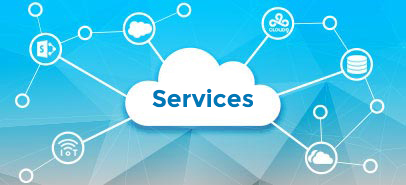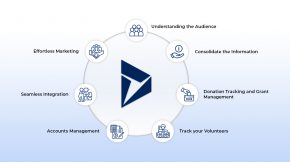Why Moodle Support? A Comprehensive Guide
You may have wondered why Moodle sometimes feels simple and, at other times, much more complex. If you manage an LMS, you might already know that Moodle help is not just about fixing things when they break. It is about steady Moodle help at every stage, so your system always works how you need it to. This blog explains what Moodle support includes, when you might need Moodle help, and what to expect from a dependable partner.
What Moodle Support Means for Your LMS
Moodle support is a group of services that help you keep your LMS reliable and useful. You get technical help, Moodle maintenance, training for users, solutions for problems, regular checks on performance, help with security, and guidance when you need to change or add something new. Support can start from the day you install Moodle and continue as your needs change. You can ask for help with small tasks or whole projects. When you have a support partner (meaning a team that knows Moodle well and helps you use it smoothly), you get more than answers, you get peace of mind that things will work.
When You Need Moodle Support
Moodle support is useful at many points. You may need Moodle technical support when you first set up your LMS. You may want Moodle help when you add new users or courses. Sometimes, you need quick answers if something does not work as it should. You may decide to change how your LMS looks or add a new feature. As your user base grows, you might notice the system slowing down (this is when you may need performance checks and Moodle maintenance). And there are times when you want to be sure your data is safe (so you ask for security help). In each case, working with a Moodle partner makes the process easier, less stressful, and more reliable.
The Main Services in Moodle Support
- Technical help keeps your LMS running. It covers installation, setting up the server, managing your database, and updating software. When the basics are set up right, you avoid many problems later. Ongoing technical help and Moodle maintenance are important for keeping things stable.
- User training helps everyone, teachers, managers, and students—use Moodle better. This can be through online courses, live sessions, written guides, or hands-on workshops. When users know how to create courses or manage students, they use Moodle more confidently. Moodle help with training ensures everyone gets the most from the system.
- Troubleshooting is about finding and fixing problems as they come up. These can be software bugs, issues with plugins, or anything else that stops people from using Moodle normally. Support services should include quick answers and clear solutions. Moodle technical support is especially important when problems affect multiple users or critical functions.
- Performance checks keep your LMS fast and responsive. This means checking how the server uses resources, making the database run better, and setting up caching (which is a way to make pages load faster by saving some data for later use). Regular checks help you avoid slowdowns as more people use the system. Good Moodle maintenance prevents performance issues from building up.
- Security help protects your data. This includes updating Moodle and all plugins, setting up strong passwords, using two-factor authentication, and running security checks (sometimes called audits). These steps guard against data leaks or outside attacks. Moodle technical support can also help respond to any security incidents quickly.
- Customization lets you change Moodle to fit your needs. You might want to add a new feature, use a different theme, or connect Moodle to other systems in your organization. A trusted support partner can help make these changes safely and effectively. Moodle help is often needed when making big changes, so nothing breaks in the process.
Why Good Support Matters for Every Organization
When you have dependable support, you avoid common mistakes. Your system is set up correctly from the start. Your users get Moodle help quickly, so they do not lose time or confidence. Regular checks mean your LMS is always ready for more users or new content. Security help keeps sensitive data safe (this is important for both user trust and meeting rules or laws). And with help for customization, you can make Moodle fit your organization better, instead of working around its limits. Ongoing Moodle maintenance keeps everything running smoothly without surprises.
Key Parts of Moodle Support and Their Benefits
- Technical help means fewer breakdowns and longer system life.
- Training means users get the most out of Moodle (so fewer questions and less confusion).
- Troubleshooting means issues are fixed before they grow into bigger problems, and Moodle technical support is always ready for urgent situations.
- Performance checks mean the LMS stays fast, even when more people use it. This is a big part of Moodle maintenance.
- Security means data stays safe and you avoid costly problems.
- Customization means Moodle works the way you need it to, and Moodle help is always available during changes.
All these parts work together. A complete support plan brings them together in a way that fits your needs.
Questions Decision Makers Ask Most
What does my server need to run Moodle?
You need PHP 7.3 or higher, Apache or Nginx, a database like MySQL or PostgreSQL, at least 500MB of storage for the Moodle code, and enough RAM and CPU for your users. This helps your site stay reliable and ready for future growth.
Do I need my own server for Moodle?
You can host Moodle yourself to have more control, but many choose a provider to handle hosting, so they do not need to manage servers or updates. This also means you get Moodle maintenance included.
How do I get training and support?
You can find training through Moodle partners, online guides, forums, or Support services. Good support means you get Moodle help that is tailored to how you use Moodle.
How do I install and set up Moodle?
Download Moodle from the official site, set up your web server and database, and run the installation script. There are step-by-step guides, and support partners can take care of the whole process if you want. Moodle technical support is useful during installation.
How can I make Moodle faster?
Meet or exceed the recommended hardware, use caching, make the database run more efficiently, use a CDN for images and files (a CDN is a network that delivers files faster), and check performance regularly. Moodle maintenance is the key to keeping things running smoothly.
How do I secure Moodle?
Update everything regularly, use strong passwords, turn on two-factor authentication, secure your server and database, back up your site often, and run security checks. Moodle technical support can help you set up all these steps.
How do I fix common Moodle problems?
Check the logs for errors, review server and database settings, make sure plugins and themes match your Moodle version, and use forums or documentation for extra help. Moodle help is available for troubleshooting at any stage.
Which plugins and themes should I use?
Choose plugins based on what you need, like Attendance for tracking, Quiz for assessments, or Certificate for completion. Themes like Edwiser RemUI, Boost, or Fordson can help your site look modern and work well on different devices.
How do I back up and restore my Moodle site?
Use Moodle’s backup tools for courses, back up your database and files regularly, and test restoring backups to make sure they work. A support team can help set up a safe backup plan, and Moodle maintenance will keep your backups reliable.
How to Choose the Right Moodle Support Partner
Look for technical skill, clear services, quick response, and good feedback from other clients. The right partner will watch your system, answer fast, and adjust their help to fit your needs. A strong support record means you can trust them with your LMS. Good Moodle technical support gives you peace of mind that problems will be fixed quickly.
A support partner should help your Moodle platform change as your needs change. They should keep up with new users, content, and technical updates. A good support relationship means your LMS is always ready for what’s next, with Moodle maintenance and Moodle help always available.
Why Ongoing Moodle Support Makes a Difference
Ongoing support keeps your system healthy, lets you add new features, and guards against new problems. Regular training, security checks, and performance reviews mean Moodle keeps working well as your organization grows. Moodle maintenance is part of this support, preventing issues before they start, while Moodle technical support is there for urgent fixes.
Full-service Moodle support is a long-term investment in your LMS, and Moodle help is always available when you need it.
Conclusion
Moodle support means your LMS works how you want, when you want. With steady Moodle help, Moodle maintenance, and Moodle technical support in every area, your platform is ready for any challenge.












